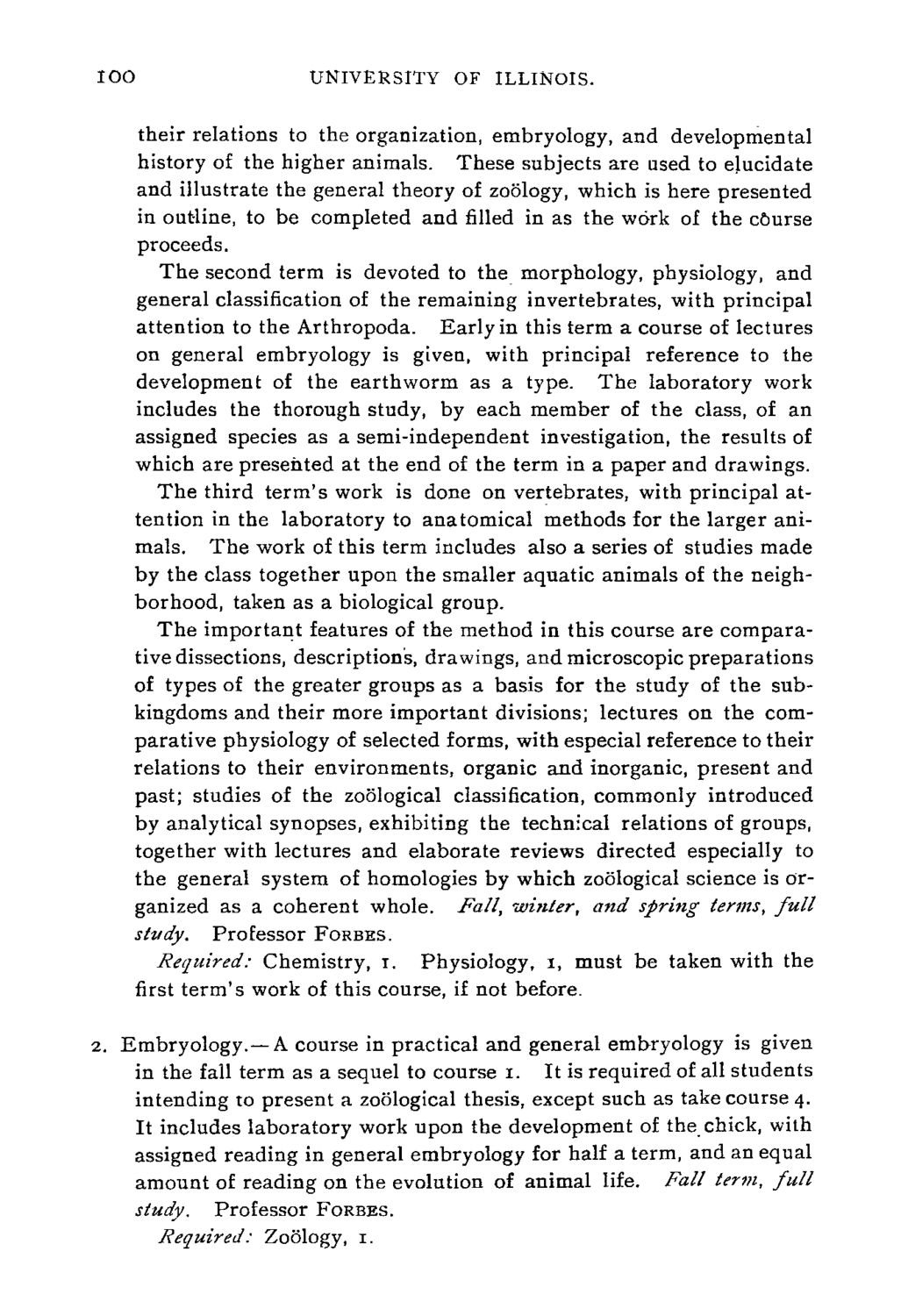| |
| |
Caption: Course Catalog - 1892-1893
This is a reduced-resolution page image for fast online browsing.

EXTRACTED TEXT FROM PAGE:
100 UNIVERSITY OF ILLINOIS. their relations to the organization, embryology, and developmental history of the higher animals. These subjects are used to elucidate and illustrate the general theory of zoology, which is here presented in outline, to be completed and filled in as the work of the course proceeds. The second term is devoted to the morphology, physiology, and general classification of the remaining invertebrates, with principal attention to the Arthropoda. Early in this term a course of lectures on general embryology is given, with principal reference to the development of the earthworm as a type. The laboratory work includes the thorough study, by each member of the class, of an assigned species as a semi-independent investigation, the results of which are presented at the end of the term in a paper and drawings. The third term's work is done on vertebrates, with principal attention in the laboratory to anatomical methods for the larger animals. The work of this term includes also a series of studies made by the class together upon the smaller aquatic animals of the neighborhood, taken as a biological group. The important features of the method in this course are comparative dissections, descriptions, drawings, and microscopic preparations of types of the greater groups as a basis for the study of the subkingdoms and their more important divisions; lectures on the comparative physiology of selected forms, with especial reference to their relations to their environments, organic and inorganic, present and past; studies of the zoological classification, commonly introduced by analytical synopses, exhibiting the technical relations of groups, together with lectures and elaborate reviews directed especially to the general system of homologies by which zoological science is organized as a coherent whole. Fall, winter, and spring terms, full study. Professor FORBES. Required: Chemistry, i. Physiology, i, must be taken with the first term's work of this course, if not before. 2. Embryology.—A course in practical and general embryology is given in the fall term as a sequel to course i. It is required of all students intending to present a zoological thesis, except such as take course 4. It includes laboratory work upon the development of the chick, with assigned reading in general embryology for half a term, and an equal amount of reading on the evolution of animal life. Fall term, full study. Professor FORBES. Required: Zoology, r.
| |